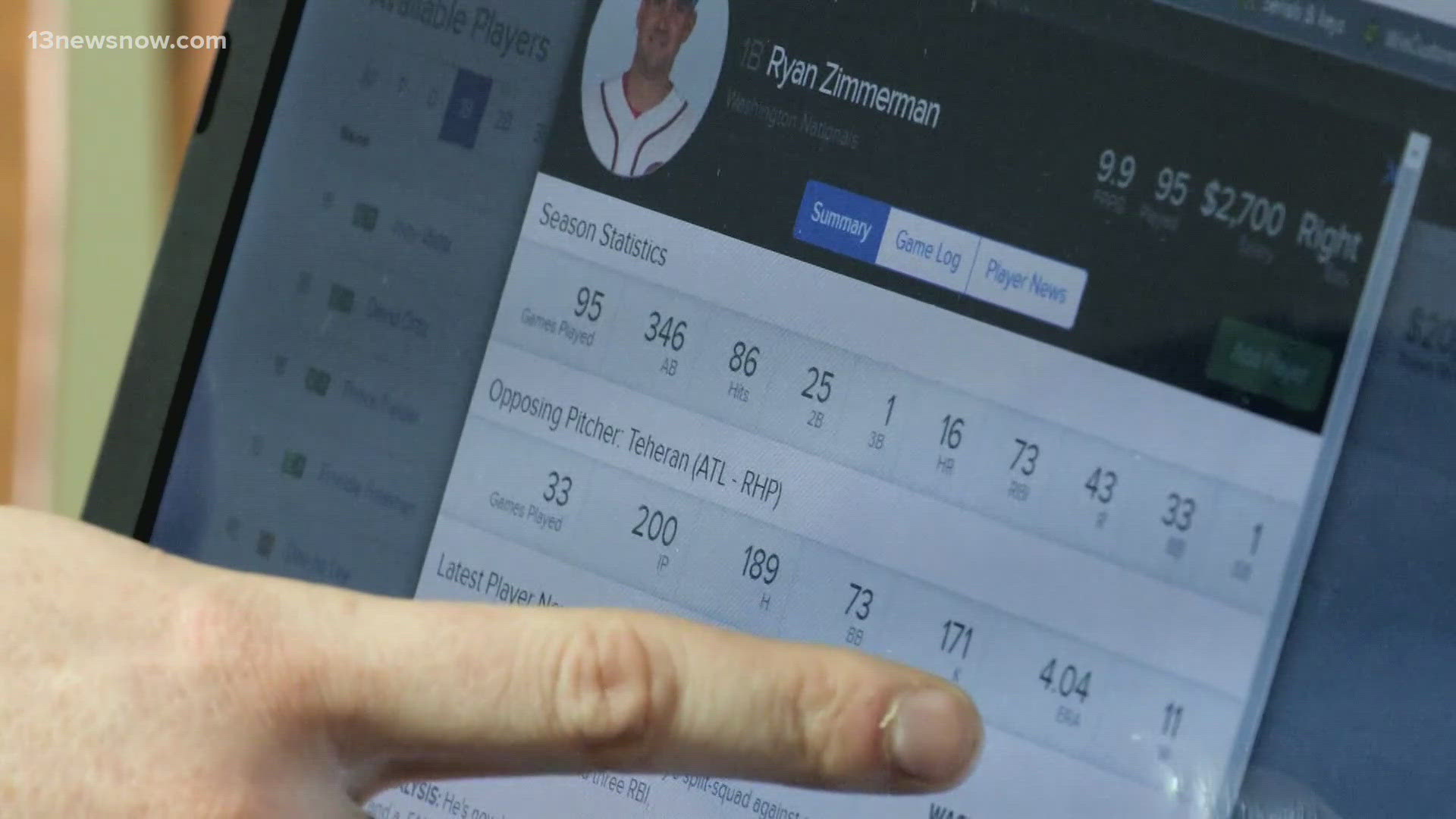NORFOLK, Va. — There are two enterprises in Virginia offering nearly the same thing, but only one has to pay hundreds of thousands of dollars in regulatory fees.
Virginia became the first state in the country to legalize fantasy sports betting in 2016, and four years later, the Commonwealth legalized traditional sports betting.
But the two entities have operated under different umbrellas since then.
Traditional sports gambling is considered a game of luck, which means it has to abide by a number of legal guidelines in order to operate.
Fantasy sports betting, on the other hand, is federally recognized as a game of skill – therefore, it is not considered gambling, and it's not bound by the same rules.
But sometime during the sports betting boom over the last four years, lines have started blurring between the two enterprises. Nearly identical proposition bets, like wagering on how many points an NBA player will score, or how many touchdowns an NFL team will have, are appearing on both fantasy gambling and traditional sports gambling platforms.
Despite this, only traditional sports books must pay steep taxes and permitting fees. These entities pay $250,000 for the initial permit, then a $200,000 renewal fee every year.
Fantasy sports apps only pay an $8,300 fee for permits and renewals.
Virginia Attorney General Jason Miyares weighed in on the issue, specifically the idea of fantasy bettors offering games based on stat lines, saying in a statement that contest results hinging solely on individual performance metrics “fall outside the definition of fantasy contest and instead constitute sports betting.”
A delegate from Fairfax, Va. has also introduced legislation clarifying the rules for the 2025 legislative session. And because fantasy sports betting is federally legal, it also doesn’t have the same age limitations.
Some lawmakers are also pushing for both betting platforms to have a universal 21-and-over age limit for participation.

